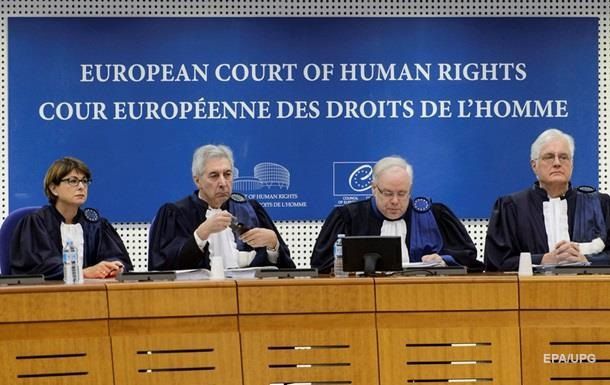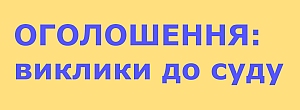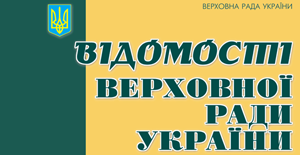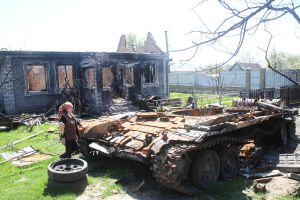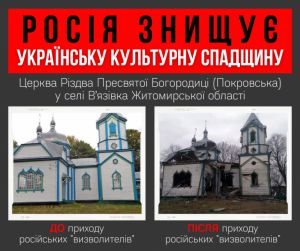The Court declared “the application partly admissible”. The case concerns Ukraine’s allegations of a pattern (“administrative practice”) of violations of the European Convention on Human Rights by the Russian Federation in Crimea. The Court identified the scope of the issue and held that what was to be decided was whether the alleged pattern of human-rights violations by Russia in Crimea was admissible.
The Court will consider allegations that Russia does not duly investigate into murders; unlawful detention and ill-treatment of people; persecution of the non-Russian-language media and restrictions on getting education in languages other than Russian; harassment and intimidation of religious leaders who do not conform to the Russian Orthodox Church; automatic granting of Russian citizenship; restrictions on free movement of Crimeans to the mainland Ukraine to mention but a few.
The Court declined as groundless accusations that after the annexation of Crimea Russia had established there “administrative practice with regard to killings/shootings”. Also, the Court held that it was not called upon in the case to decide whether Crimea’s admission, under Russian law, into Russia had been lawful from the standpoint of international law.
At the same time, the international judicial authority recognized that Russia had established the military control over Crimea before March 2014, the date of holding “the referendum” on the admission of the peninsula into Russia. In its ruling the Court mentioned that the Kremlin had increased the number of its military in the Crimean Peninsula in advance. Later, they began blocking Ukrainian army units stationed in Crimea. Thus, the Court noted that Russia had exercised effective control over Crimea as from February 27, 2014, despite Russia’s assurances that it began exercising control over the peninsula since March 18, 2014, when Crimea became Russian in accordance with the results of the Kremlin-organized “referendum”, although there is plenty of evidence that speaks otherwise.
It was noted in the Court’s ruling that the number of Russian military in Crimea had doubled from 10 thousand Russian military personnel to 20 thousand over the period of three months from January to March 2014. The ECHR described the military presence of Russia in Crimea as considerable.
Besides, the Court’s ruling says that the military reinforcement took place “without consent or cooperation with the Ukrainian authorities”.
The ECHR took note of the undeniable statements by President Putin. The first one was made “on the night of 22 to 23 February 2014, during a meeting with the heads of security agencies.” The President of the Russian Federation Putin is quoted as saying that he had taken “the decision to start working on the return of Crimea to the Russian Federation”. Putin’s second statement was made during his television interview on April 17, 2014. He openly admitted that Russia “had to disarm the military units of the Ukrainian army and law enforcement agencies”, and that “behind the backs of the Crimean self-defense units, there were our soldiers”.
Now on the basis of the passed ruling, the European Court on Human Rights will have to consider all key points of Ukraine’s allegations against the Russian Federation. This will be a step forward rather than the end of the story, lawyers claim. After recognizing the application admissible, the Court noted that its conclusion at this particular stage does not concern the establishment of Russia’s responsibility for definite and specific violations of human rights in Crimea. These questions will be considered later. The actual decision is intermediary and just greenlights the consideration of the application on the merits. The date of the final decision on the case is unknown so far. After all, the consideration of Inter-state complaints may take years.
Nevertheless, the ruling of the European Court is a powerful legal blow at a set of myths that Russia uses in the ongoing hybrid warfare. “Crimea is a history of armed aggression and the gross violations of human rights and not at all “the referendum” or “peaceful expression of the people’s will”, stressed Justice Minister of Ukraine Denys Malyuska. Now, there is any ground to say that it was Russia that had initiated “the referendum” in the peninsula and that it had been held at the gunpoint of Russian machineguns.
Oleksandr Merezhko, head of the parliamentary committee for issues of foreign policy and inter-parliamentary cooperation, maintains that this fact is the most important one as it proves that Russia has annexed the Crimean Peninsula prior “the referendum”.
Merezhko says that now the legal confirmation of this fact by the European Court is of crucial importance from the standpoint of international legal position of Ukraine and for the defense of it foreign interests.
He says that from now on, Ukraine can refer to the Court’s decision and use it as an argument at other international courts.
Reference
The European Court on Human Rights is an international judicial agency whose jurisdiction extends to all states-members of the Council of Europe that have ratified the European Convention for the Protection of Human rights and Fundamental Freedoms.
The newspaper Voice of Ukraine


